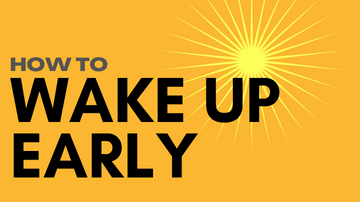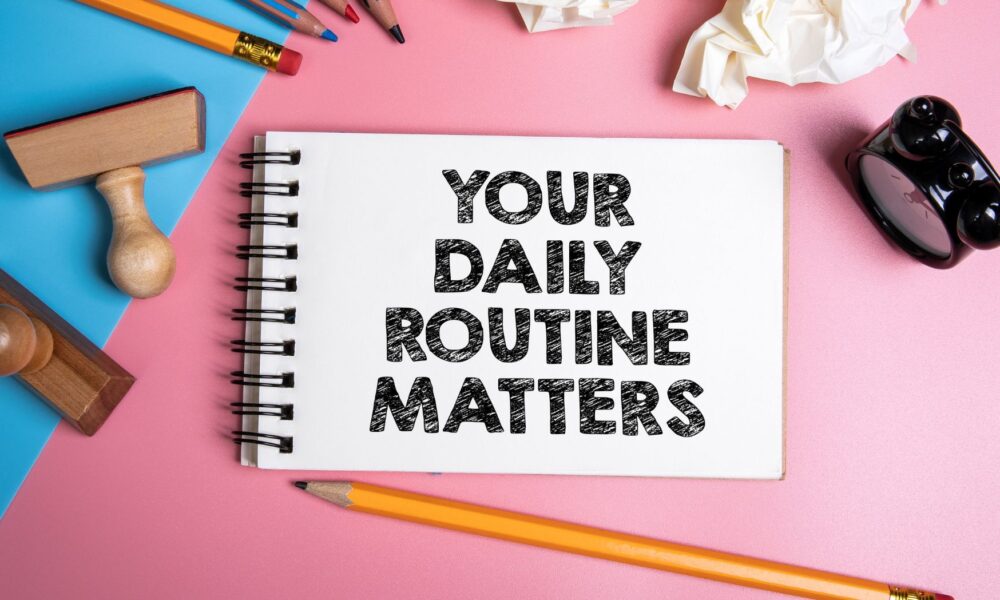Last Updated on May 22, 2025 by Kavya K
The Science Behind Waking Up Early (and How to Do It)
Waking up early has long been touted as a key habit of successful people, from entrepreneurs to athletes, but is there any science behind it? Is waking up early actually beneficial, and if so, how can you train yourself to become a morning person? In this article, we will explore the science behind waking up early and offer practical tips to help you make the transition to an early riser.
Why Waking Up Early Is Good for You
Waking up early has been linked to numerous benefits, from improved productivity to better mental health. While society often glorifies night owls, research shows that early risers tend to experience several advantages in both physical and psychological well-being.
- Improved Mental Clarity and Focus: When you wake up early, your brain is generally more rested and better able to focus. According to studies, people who wake up early often report feeling more mentally alert and productive in the morning. This could be because sleep cycles are optimized, with early risers typically entering a deeper, more restorative phase of sleep.
- Better Sleep Quality: Those who wake up early and follow a consistent sleep schedule tend to experience better quality sleep overall. By waking up early, you encourage your body to maintain a regular circadian rhythm, which regulates your sleep-wake cycle. A balanced circadian rhythm has been linked to improved sleep quality, reduced risk of insomnia, and overall better health.
- Boost in Productivity: Early risers often get a jumpstart on their day. Waking up early allows you to complete tasks before distractions arise, leaving you with a sense of accomplishment. Research indicates that people who wake up earlier tend to be more proactive, organized, and goal-driven, all of which contribute to increased productivity.
- Improved Mood: Studies show that waking up early can have a positive effect on your mood and emotional well-being. Exposure to natural sunlight early in the morning helps regulate your body\’s production of melatonin, a hormone that controls sleep patterns, and serotonin, which affects your mood. By waking up early and getting exposure to sunlight, you may experience improved mood and reduced feelings of stress or anxiety.
- Healthier Lifestyle: Early risers tend to engage in healthier lifestyle habits. From having time for a balanced breakfast to exercising in the morning, waking up early encourages healthier choices throughout the day. Research has shown that people who wake up early are more likely to follow a consistent workout routine, eat nutritious meals, and maintain a healthier overall lifestyle.
The Science of Sleep and Circadian Rhythms
To understand the benefits of waking up early, it’s important to look at the science of sleep and how your body’s natural rhythms work. Your body follows an internal clock, called the circadian rhythm, which regulates when you feel awake and when you feel sleepy.
- Circadian Rhythm: The circadian rhythm is influenced by various factors, including exposure to light and darkness, which helps control your sleep-wake cycle. When you wake up early and expose yourself to natural light, it signals to your brain that it\’s time to be awake, which helps synchronize your internal clock with the natural day-night cycle.
- Sleep Stages: Sleep is divided into several stages, each playing an important role in physical and mental restoration. Early risers who maintain a regular sleep schedule are more likely to experience the deeper stages of sleep, such as rapid eye movement (REM) sleep, which is crucial for memory consolidation, emotional regulation, and overall cognitive function.
- Melatonin and Cortisol: Melatonin, the hormone responsible for sleep regulation, is produced in the evening and signals to your body that it’s time to wind down for the night. In the morning, exposure to light helps reduce melatonin levels and increases cortisol, the hormone associated with wakefulness and energy. Waking up early helps kickstart this natural process, allowing you to feel more awake and alert.
How to Become a Morning Person: Practical Tips
If you’ve always struggled to get up early, don’t worry — with the right strategies, you can gradually train yourself to become a morning person. Here are some practical tips for making the transition:
- Gradually Adjust Your Bedtime: One of the most common mistakes people make when trying to wake up early is attempting to make a drastic change in their sleep schedule all at once. Instead of jumping from waking up at 9 a.m. to 5 a.m., try adjusting your bedtime and wake-up time by 15 to 30 minutes each day. This gradual shift allows your body to adapt without feeling overwhelmed.
- Set a Consistent Wake-Up Time: Consistency is key when it comes to waking up early. Set a wake-up time that you can stick to every day, even on weekends. This consistency helps regulate your circadian rhythm and reinforces your body\’s natural sleep-wake cycle.
- Create a Relaxing Bedtime Routine: To ensure you get quality sleep, it’s important to establish a bedtime routine that helps signal to your body that it’s time to wind down. Avoid stimulating activities, such as watching TV or scrolling through your phone, in the hour leading up to bed. Instead, try reading a book, practicing deep breathing, or engaging in relaxation techniques.
- Limit Caffeine and Stimulants: Caffeine can interfere with your sleep cycle, especially if consumed later in the day. To ensure a restful night’s sleep, try to limit your caffeine intake and avoid other stimulants, such as nicotine or heavy meals, in the hours leading up to bedtime.
- Avoid Electronic Devices Before Bed: The blue light emitted by smartphones, tablets, and computers can disrupt your body’s production of melatonin, making it harder to fall asleep. Consider adopting a “digital sunset” by turning off all electronic devices at least 30 minutes before bedtime. Instead, try reading, meditating, or journaling to prepare your mind for sleep.
- Expose Yourself to Natural Light in the Morning: As soon as you wake up, try to get outside and expose yourself to natural sunlight. Sunlight helps reset your circadian rhythm and signals to your brain that it’s time to be awake. If you’re unable to go outside, try opening your curtains to let in natural light.
- Have a Morning Ritual You Look Forward To: To make waking up early more enjoyable, create a morning routine that you look forward to. This could include activities like stretching, meditation, journaling, or enjoying a cup of coffee. Having a positive morning ritual can make waking up early feel less like a chore and more like an opportunity to start your day on a positive note.
- Avoid Napping During the Day: While naps can be refreshing, they can also interfere with your ability to fall asleep at night. If you find yourself feeling sleepy during the day, try to resist the urge to nap, especially if it’s late in the afternoon. Instead, focus on staying active and alert throughout the day to build a natural sleep pressure for the evening.
Overcoming Common Challenges When Waking Up Early
Making the transition to waking up early can come with its own set of challenges, especially if you’re used to being a night owl. Here are some common obstacles and how to overcome them:
- Difficulty Falling Asleep Early: If you’re not used to going to bed early, you may find it difficult to fall asleep at your new bedtime. Try incorporating relaxation techniques, such as deep breathing or progressive muscle relaxation, to help calm your mind and prepare for sleep.
- Lack of Motivation in the Morning: Waking up early can feel tough, especially when your bed is warm and cozy. To stay motivated, remind yourself of the benefits of waking up early, such as increased productivity, better health, and more free time in the evening. You can also set a goal or reward for yourself to make waking up early feel more rewarding.
- Disruptions to Your Routine: Life happens, and sometimes your morning routine may be disrupted. If you miss a morning, don’t get discouraged. Just pick up where you left off the next day and continue your efforts. Building a new habit takes time and consistency.
Conclusion: The Benefits of Waking Up Early
Waking up early is more than just a habit — it’s a lifestyle change that can positively impact every area of your life, from productivity to health. By understanding the science behind waking up early and implementing strategies to make it a part of your routine, you can enjoy the many benefits of starting your day early. Whether it’s improved focus, better mood, or more free time, waking up early is an investment in your overall well-being and success.
By gradually adjusting your sleep schedule, creating a relaxing bedtime routine, and committing to consistency, you can train yourself to become a morning person and reap the rewards of early riser status.










